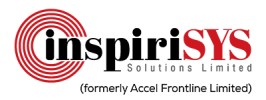
i
Fusioni
Technologies
Filter interviews by
Fusioni Technologies Interview Questions and Answers
7 Interview questions
I follow the MVC (Model-View-Controller) design pattern in my iOS development.
Separates data (Model), user interface (View), and control logic (Controller)
Improves code organization and maintainability
Promotes reusability and scalability
Examples: UIKit framework in iOS uses MVC pattern
ARC manages memory in iOS, using strong and weak references to prevent memory leaks and retain cycles.
ARC (Automatic Reference Counting) automatically manages memory in Swift and Objective-C.
Strong references increase the reference count of an object, keeping it in memory.
Weak references do not increase the reference count, allowing the object to be deallocated.
Example: A parent object holding a strong reference t...
RxJava is a library for composing asynchronous and event-based programs using observable sequences.
RxJava is a Java implementation of ReactiveX, a library for composing asynchronous and event-based programs using observable sequences.
It provides a set of operators to transform, filter, and combine these sequences.
RxJava can be used for network calls, database operations, UI events, and more.
It simplifies concurren...
Val is immutable and var is mutable in Kotlin programming language.
Val is used to declare a variable whose value cannot be changed once assigned.
Var is used to declare a variable whose value can be changed.
Val is similar to final variable in Java.
Var is similar to non-final variable in Java.
Val is preferred over var as it ensures immutability and reduces the chances of bugs.
Example: val name = "John" // value cann...
Broadcast Receiver is a component of Android system that listens to system-wide broadcast announcements.
It is used to respond to system-wide broadcast announcements.
It is implemented as a subclass of BroadcastReceiver class.
It can be registered either statically in AndroidManifest.xml or dynamically in code.
Examples of system-wide broadcasts are battery low, network connectivity changes, etc.
Yes, I have worked on MVVM architecture pattern.
MVVM stands for Model-View-ViewModel.
It separates the UI logic from the business logic.
ViewModel acts as a mediator between Model and View.
Data binding is a key feature of MVVM.
I have implemented MVVM in my previous Android projects using Android Architecture Components such as LiveData and ViewModel.
Closures are self-contained blocks of functionality that can be passed around and used in your code.
Closures capture and store references to any constants and variables from the context in which they are defined.
There are three types of closures: Global functions, Nested functions, and Closure expressions.
Closure expressions are unnamed closures written in a lightweight syntax that can capture values from their su...
Fusioni Technologies Interview Experiences
2 interviews found
I applied via LinkedIn and was interviewed before May 2023. There was 1 interview round.
(5 Questions)
- Q1. Tableview data source and delegate Closure Protocol Class and structure Arc Data pass
- Q2. Closure and its types
- Ans.
Closures are self-contained blocks of functionality that can be passed around and used in your code.
Closures capture and store references to any constants and variables from the context in which they are defined.
There are three types of closures: Global functions, Nested functions, and Closure expressions.
Closure expressions are unnamed closures written in a lightweight syntax that can capture values from their surroun...
- Q3. Protocol and delegate
- Q4. ARC and strong and weak
- Ans.
ARC manages memory in iOS, using strong and weak references to prevent memory leaks and retain cycles.
ARC (Automatic Reference Counting) automatically manages memory in Swift and Objective-C.
Strong references increase the reference count of an object, keeping it in memory.
Weak references do not increase the reference count, allowing the object to be deallocated.
Example: A parent object holding a strong reference to a c...
- Q5. Design patternwhich followed
- Ans.
I follow the MVC (Model-View-Controller) design pattern in my iOS development.
Separates data (Model), user interface (View), and control logic (Controller)
Improves code organization and maintainability
Promotes reusability and scalability
Examples: UIKit framework in iOS uses MVC pattern
Interview Preparation Tips
Skills evaluated in this interview
I applied via Naukri.com and was interviewed before Jan 2022. There were 3 interview rounds.

(4 Questions)
- Q1. Have you worked on MVVM?
- Ans.
Yes, I have worked on MVVM architecture pattern.
MVVM stands for Model-View-ViewModel.
It separates the UI logic from the business logic.
ViewModel acts as a mediator between Model and View.
Data binding is a key feature of MVVM.
I have implemented MVVM in my previous Android projects using Android Architecture Components such as LiveData and ViewModel.
- Q2. What is Broadcast Reciever?
- Ans.
Broadcast Receiver is a component of Android system that listens to system-wide broadcast announcements.
It is used to respond to system-wide broadcast announcements.
It is implemented as a subclass of BroadcastReceiver class.
It can be registered either statically in AndroidManifest.xml or dynamically in code.
Examples of system-wide broadcasts are battery low, network connectivity changes, etc.
- Q3. What is difference in Val and var?
- Ans.
Val is immutable and var is mutable in Kotlin programming language.
Val is used to declare a variable whose value cannot be changed once assigned.
Var is used to declare a variable whose value can be changed.
Val is similar to final variable in Java.
Var is similar to non-final variable in Java.
Val is preferred over var as it ensures immutability and reduces the chances of bugs.
Example: val name = "John" // value cannot be...
- Q4. What is Rx Java .?
- Ans.
RxJava is a library for composing asynchronous and event-based programs using observable sequences.
RxJava is a Java implementation of ReactiveX, a library for composing asynchronous and event-based programs using observable sequences.
It provides a set of operators to transform, filter, and combine these sequences.
RxJava can be used for network calls, database operations, UI events, and more.
It simplifies concurrency an...
Then ask me to parse a json api in a recycler view
Interview Preparation Tips
Smooth and polite work environment.
No office politics and toxicity at all
Skills evaluated in this interview
Top trending discussions






Interview questions from similar companies

Software Engineer Interview Questions & Answers
Apmosys Technologiesposted on 13 Jan 2021
I applied via Referral and was interviewed before Jan 2020. There was 1 interview round.
Interview Questionnaire
2 Questions
- Q1. Which technology are you using, is this latest?
- Ans.
We are using a variety of technologies, including some of the latest ones.
We are using React for our front-end development.
We are also using Node.js for our back-end development.
We are using Docker for containerization.
We are using Kubernetes for orchestration.
We are using AWS for cloud hosting.
We are constantly evaluating new technologies to see if they can improve our development process.
- Q2. If not then which technology can we use instead of this?
- Ans.
It depends on the specific requirements and constraints of the project.
Consider the project's goals and objectives
Evaluate the available technologies and their capabilities
Assess the project's budget and timeline
Consult with stakeholders and experts in the field
Examples: React vs Angular, MySQL vs MongoDB, Java vs Python
Interview Preparation Tips
Listen carefully and speak fluently.

I applied via Company Website and was interviewed before Dec 2019. There were 3 interview rounds.
Interview Questionnaire
1 Question
- Q1. Regarding OOPS, wordpress and laravel.
Interview Preparation Tips

Software Developer Interview Questions & Answers
Apmosys Technologiesposted on 12 Apr 2023
I applied via Recruitment Consulltant and was interviewed before Apr 2022. There were 3 interview rounds.

25 MCQ questions online with time limit
Create webapp . Frontend, Backend , data encryption

I applied via Campus Placement and was interviewed in Sep 2024. There were 3 interview rounds.
Aptitude questions with some basic coding questions
They have given 3 coding questions and some pseudo codings
(2 Questions)
- Q1. Tell about your self
- Q2. Some coding questions
Interview Preparation Tips

Software Engineer Interview Questions & Answers
BigStep Technologiesposted on 18 Mar 2025
I appeared for an interview before Mar 2024, where I was asked the following questions.
- Q1. Questions on dsa, 2 medium and 1 easy level.
- Q2. Questions related to the projects.

Senior Software Engineer Interview Questions & Answers
BigStep Technologiesposted on 24 Oct 2023
I applied via Approached by Company and was interviewed before Oct 2022. There were 3 interview rounds.

(1 Question)
- Q1. Find the duplicate items in the array.
- Ans.
Find duplicate items in array of strings.
Iterate through array and store each item in a hash set.
If item already exists in hash set, it is a duplicate.
(1 Question)
- Q1. Javascript basics questions
Skills evaluated in this interview

Software Engineer Interview Questions & Answers
BigStep Technologiesposted on 25 Aug 2021
Interview Questionnaire
1 Question
- Q1. Questions regards node js and java script concept, event loop, why node is single threaded, how event loop works in node js, database queries and previous work experience.
Interview Preparation Tips
Advice:
Answer question with confidence.
Feel comfortable with interviewer.

Software Developer Interview Questions & Answers
BigStep Technologiesposted on 19 Nov 2021
I applied via Naukri.com and was interviewed in May 2021. There was 1 interview round.
Interview Questionnaire
4 Questions
- Q1. To find if a number is Prime or not and optimise your written code.
- Ans.
Check if a number is prime and optimize the code.
Start by checking if the number is less than 2, in which case it is not prime.
Iterate from 2 to the square root of the number and check if any of them divide the number evenly.
If a divisor is found, the number is not prime. Otherwise, it is prime.
- Q2. Css question related to flex box, Grid and cross browser compatibility
- Q3. To call an API in react and optimise your written code.
- Ans.
To optimise API calls in React, use asynchronous functions and caching techniques.
Use async/await to handle API calls
Implement caching to reduce network requests
Use memoization to avoid unnecessary re-renders
Consider using a state management library like Redux
Use performance profiling tools like React DevTools
- Q4. Questions on JS concepts like Objects and Prototype Inheritance.
Interview Preparation Tips
Skills evaluated in this interview
Fusioni Technologies Interview FAQs
Tell us how to improve this page.
Interview Questions for Popular Designations
- Executive Interview Questions
- Software Developer Interview Questions
- Business Analyst Interview Questions
- Senior Engineer Interview Questions
- Sales Executive Interview Questions
- Graduate Engineer Trainee (Get) Interview Questions
- Accountant Interview Questions
- System Engineer Interview Questions
- Show more
Overall Interview Experience Rating
based on 2 interview experiences
Difficulty level
Duration
Interview Questions from Similar Companies
Fusioni Technologies Reviews and Ratings
based on 11 reviews
Rating in categories
|
IOS Developer
10
salaries
| ₹2.9 L/yr - ₹9.5 L/yr |
|
Web Developer
8
salaries
| ₹2.4 L/yr - ₹9 L/yr |
|
Android Developer
7
salaries
| ₹2.5 L/yr - ₹8.6 L/yr |
|
IOS Application Developer
6
salaries
| ₹5.3 L/yr - ₹10 L/yr |
|
Android App Developer
5
salaries
| ₹3.6 L/yr - ₹6.5 L/yr |

Zidio Development

Northcorp Software

Accel Frontline

Elentec Power India (EPI) Pvt. Ltd.
- Home >
- Interviews >
- Fusioni Technologies Interview Questions










